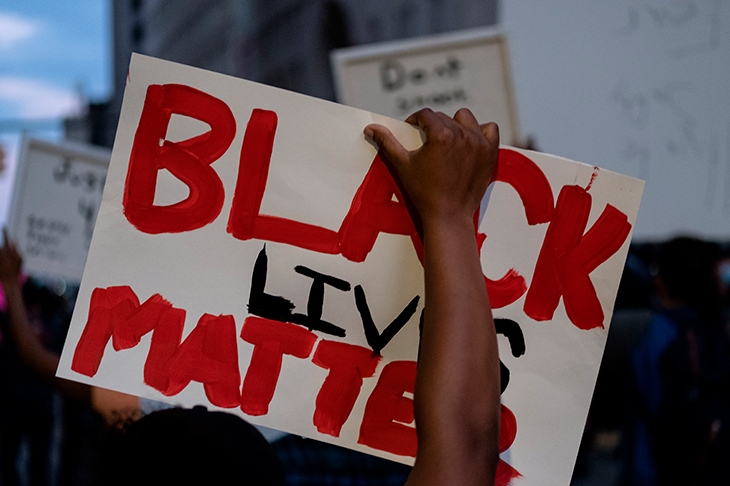If there is no such thing as ‘race’ — since all humans belong to the same subspecies — why is there such a thing as racism? The modern answer is that race is (yawn) a ‘social construct’. But in the light of a famous passage in the 5th century BC by Thucydides, there is a case for saying that racism is the antisocial construct.
Thucydides described how in 427 BC civil war broke out in Corcyra (Corfu) as pro-Spartan oligarchs attempted to drive out pro-Athenian democrats. What struck Thucydides about this development was that violence became the norm, with men ‘reversing the usual evaluative force of words to suit their own assessment of the situation’. So words associated with admirable behavior, like ‘prudence’, were replaced by words of quite different connotation — in this case, ‘cowardice’. ‘Moderation’ became ‘gutlessness’, ‘ability to see all points of view’ became ‘unfitted for action’, the ‘violent’ were ‘trustworthy’, and those who spoke against them ‘suspect’. As for oaths, it was doubly sweet to outwit an opponent by breaking them, since a capacity for treachery marked the real man. Conscience was ignored: more attention was given to the man who could justify outrages attractively.
The cause of this factional violence, said Thucydides, was ‘the lust for power arising from greed and ambition…its leaders committed appalling atrocities in order to pursue their own interests while pretending to cherish “public interests”, embracing any means in their struggles for supremacy’.
***
Get a print and digital subscription to The Spectator.
Try a month free, then just $7.99 a month
***
Thucydides’s theme is the destructive power of language. In its modern uses, with their overtones of eugenics and past imperial exploitation, ‘racism’ is already a pretty toxic term. If one adds in the public face of the BLM anti-racist agenda, which has become associated with antisocial street violence and destruction (not to mention anti-capitalism), it looks as if a ‘struggle for supremacy’ is going on, with ‘public interest’ the last thing in mind. Indeed, the term ‘racism’ simply adds fuel to that fire.
One does not defeat injustice by injustice. ‘Racism’ needs deconstructing, and decolonizing.
This article was originally published in The Spectator’s UK magazine. Subscribe to the US edition here.


















